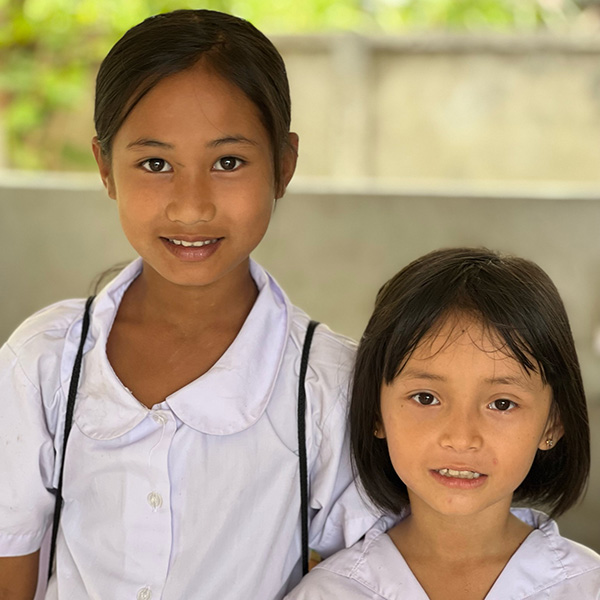

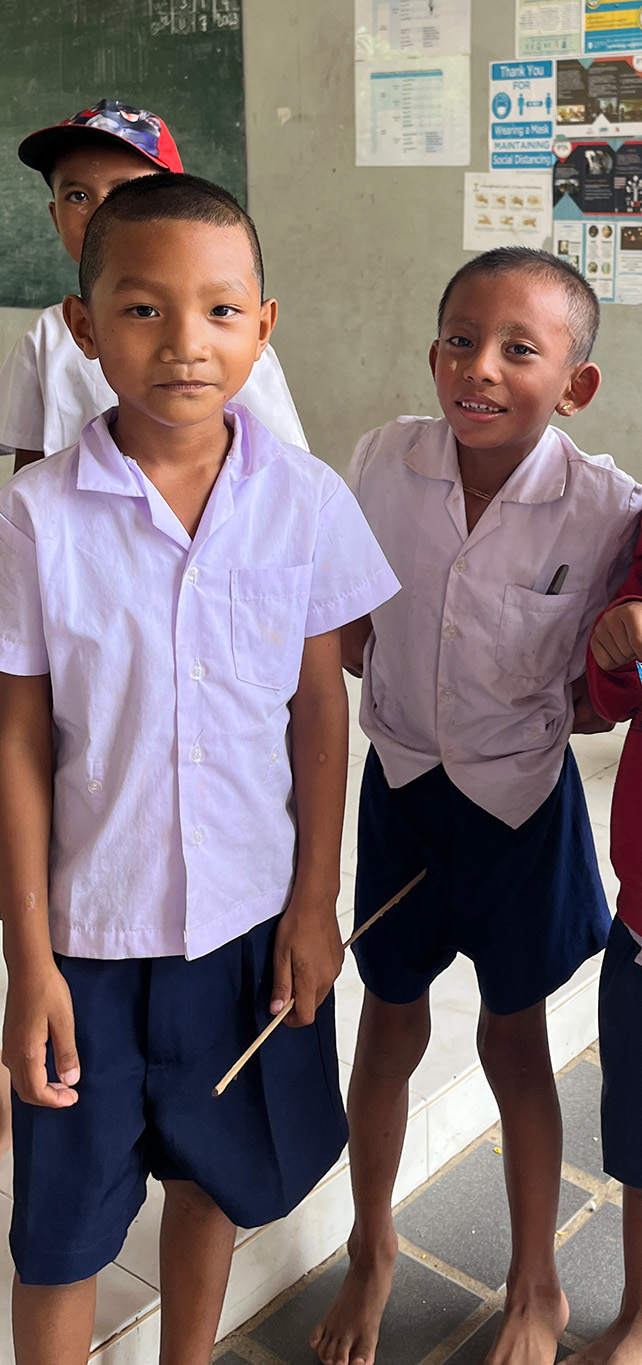
Everyone has the Right to Education
Thailand suffers from the poor quality of its education system. Plagued by poor management, educational inequality, insufficient funding, and teacher shortages—urban schools are shown favor over rural schools. Many schools are struggling with the lack of basic resources such as textbook, current curriculum, and modern technology. With the severe lack of qualified teachers, particularly in rural areas, critical subjects like math and science are suffering along with overcrowded classrooms, lack of individual attention and insufficient academic progress.
Disparities are extremely evident, as students in rural schools face limited access to qualified teachers and educational resources and funding. The educational inequality affects marginalized communities and creates social divisions.


Startling facts:
- On a global scale, Thailand’s education budget falls significantly short of international standards. Thailand allocates only 15% of its annual budget to education, whereas most countries allocate at least 20% or higher according to UNESCO.
- Of the 13.3 million children under the age of 18, 14% do not complete lower secondary, and 53% do not complete upper secondary.
- The Programme for International Student Assessment (PISA) tests consistently reveal that Thai students seriously lag other nations.
- Almost two-thirds or 64.7% of the youth and adult population in Thailand are below the threshold level of literacy skills, meaning they are unable to read and understand short passages to solve simple problems, such as following a medicine label.
- Often, parents need their children to work on their farm, or help out at home, or look after them. This is an entrenched system which accepts that school is unfortunately not a priority because they have to sustain themselves.
- More than one-third of 15-year-old Thai students are “functionally illiterate.” The problem is particularly acute for students in rural areas, where 47% of 15-year-old students are functionally illiterate.
BECOME AN EDUCATION ADVOCATE
Not only is the education system in Thailand is outdated, but over half the kids do not complete secondary school. Your sponsorship will help Thailand’s children receive the education the need to overcome poverty, prostitution, slavery, and discrimination. Empower Education is dedicated to coming alongside impoverished children who are neglected and likely to fall prey to the vulnerabilities of their environment. We provide them with a safe and healthful environment where they can learn and grow their fullest potential, giving them a chance at a brighter future.
We currently provides educational opportunities to over 1,300 students in Central and Southeast Asia. They have opened 11 schools, that include education facilities for children, adults, and a leadership academy, plus the ability to learn technical skills. We will soon be expanding into Thailand. We invite you to join our efforts.
Education is the way out of poverty. Every child has a right to education, but not the opportunity. Become an education advocate today. Give a child the opportunity they deserve.
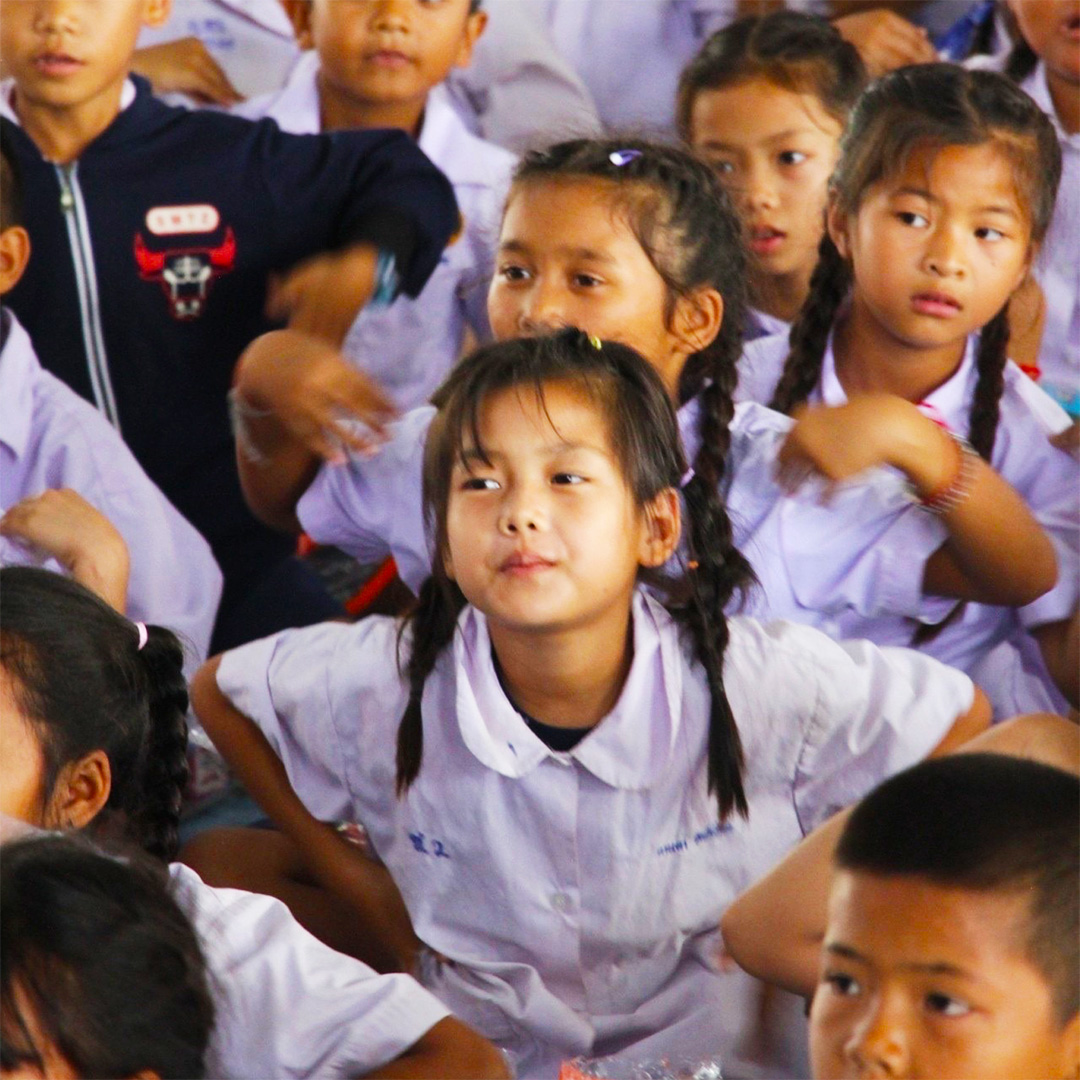

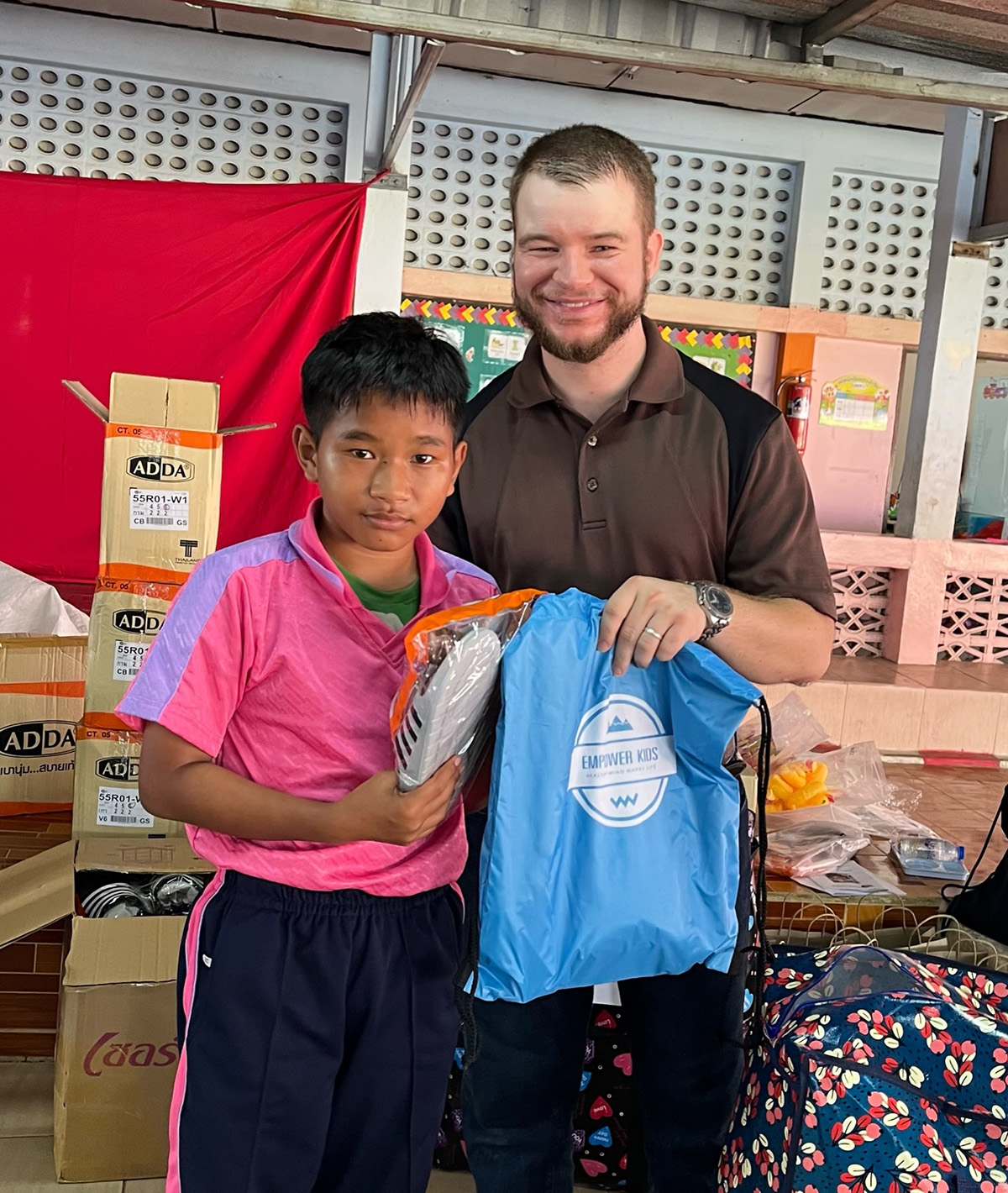
How Students Benefit From Your Sponsorship
- Tuition and Fees (books, uniforms, field trips, graduation fees, lunch fees, miscellaneous fees, etc.)
- Building Costs (utilities, furniture and other furnishings, security, maintenance and repairs, etc.)
- Teachers and Administration Costs (Salaries, research and development, seminars for further education, etc.)
- School Administration costs
- Computer labs, Science labs, sports equipment, projects and events, Music, etc.)
- Transportation (school bus, van, etc,)
- Media, photography, video production
- Family Counseling (seminars, books, materials, etc.)
- Emergency Funds

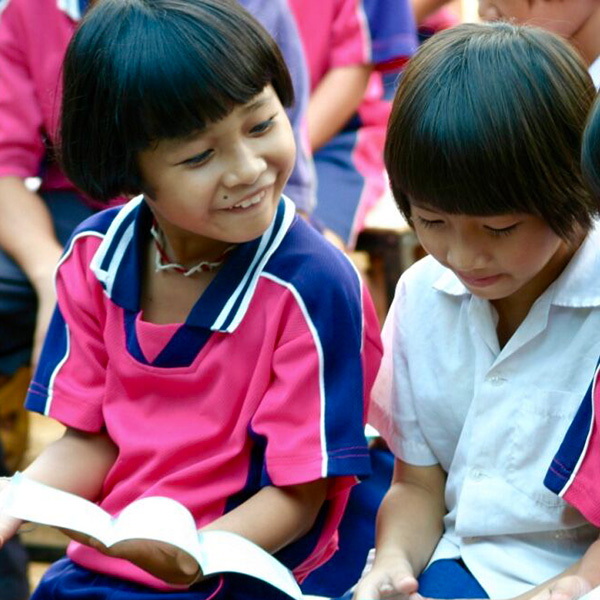
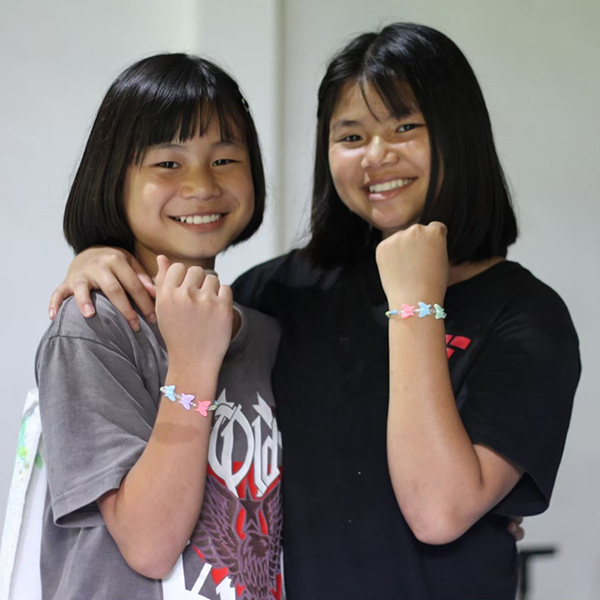

Our sponsorship programs help educate the most underprivileged by providing:
- Education for children from primary school to post-high school.
- Aptitude assessment and training for students beginning at 11 years old.
- Provide post-primary students with high school entrance assistance.
- Provide post-secondary students with college entrance assistance.
- High school and college prep programs.
- Vocational training for post-primary students with specific technical skill development.
- Guidance into professional and vocational career tracks so they can become part of society.
Against the Odds
Thailand's Toughest Challenges
Thailand faces a complex web of social issues. While poverty and corruption leave many vulnerable, human rights concerns extend to forced marriage, human trafficking, and prostitution. The education system struggles to keep pace, and violence remains a problem. Addressing these challenges requires a multifaceted approach that prioritizes human dignity and strengthens the rule of law.
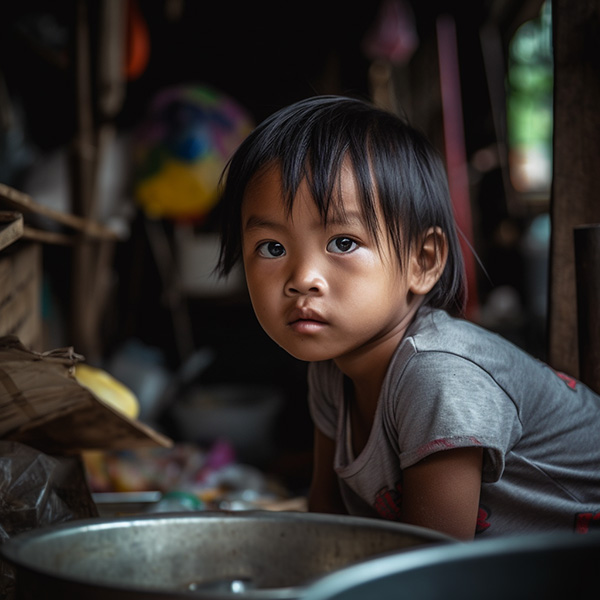
Poverty
- 79% of the poor are in rural areas and work mainly in agricultural households.
- Around one in ten children under five years old in Thailand experience severe food poverty which threatens their health and overall development, according to UNICEF.
- The survey also found that 13% of children under five were stunted and 7% were underweight due to prolonged poor nutrition.
- Stunting and wasting are more common among children from poor households, children in non-Thai families and children whose mothers have little or no education.
- In Thailand's southernmost provinces, stunting rates among children under five are 20%.
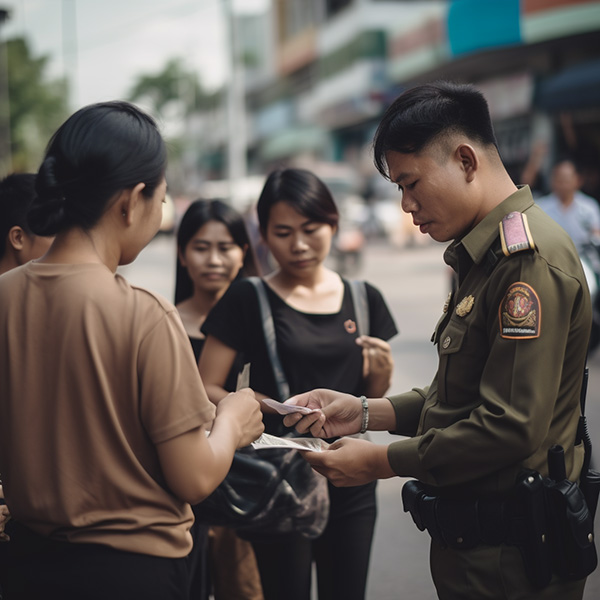
Corruption
- Corrupt officials have been accused of arresting irregular migrant workers and forcing them to pay fines to be released.
- According to Transparency International, 88% of Thai people think government corruption is a big problem.
- 24% of public service users paid a bribe in the previous 12 months.

Forced Marriage
The rate of child marriage is higher among women from rural areas compared to urban areas (25% and 17% respectively).

Slavery
- 401,000 estimated living in modern slavery. This equates to 5.7 people in modern slavery for every thousand people in the country.
- Thailand has the 14th highest prevalence out of 27 countries in the Asia Pacific region.
- Forced labor is evident in agriculture, fishing construction, manufacturing, and domestic work sectors.
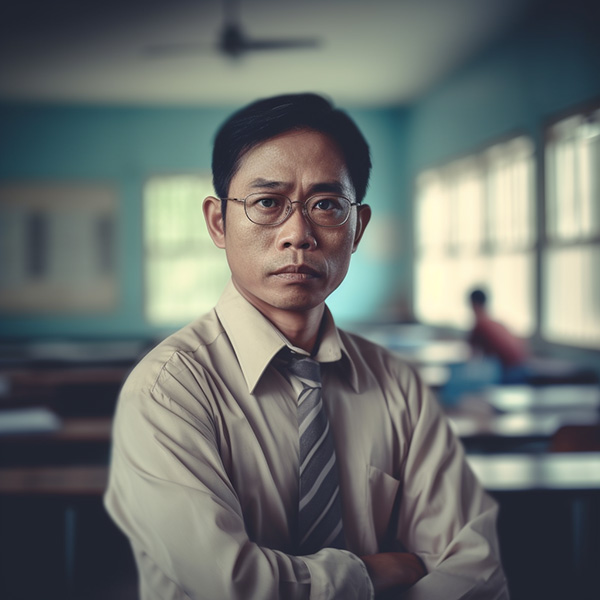
Education (Rural)
- 7.2% of the Thai population live below the poverty line. That number is 4X higher in rural areas.
- Rural schools receive less government funding.
- Rural schools are in constant need of repairs, along with limited school supplies. The best teachers are offered better jobs at high performing schools in the cities.
- According to the Ministry of Education of Thailand, 15,158 rural schools across Thailand have less than 120 students and are at risk of being dissolved by the government. Millions of children would face a violation of their right to education.
- About 1.02 million children aged between three and 18 are not attending school because of poverty.
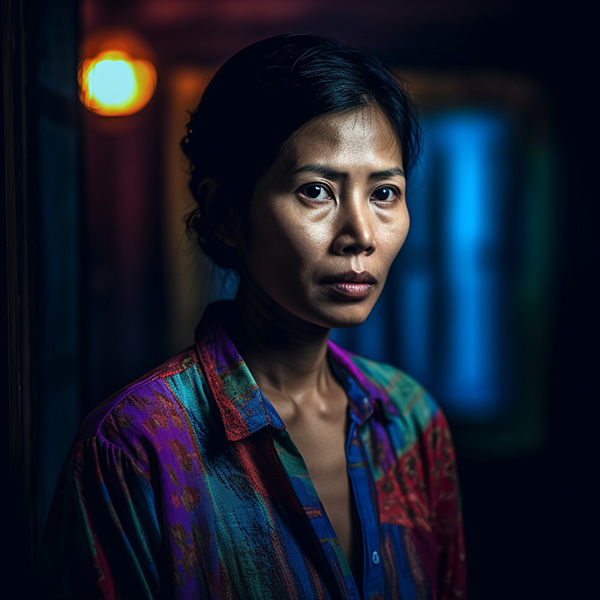
Violence
According to statistics from the Department of Children and Youth Protection, 12,000 cases of children and young people committing criminal offenses were reported in the period 2022-2023. More than half of the offenders had completed high school and most came from broken homes.

Human Trafficking
- In Thailand, close to 40,000 children under the age of 16 are believed to be in the sex trade, working in clubs, bars, and brothels.
- There are more than 600,000 victims of human trafficking in Thailand.
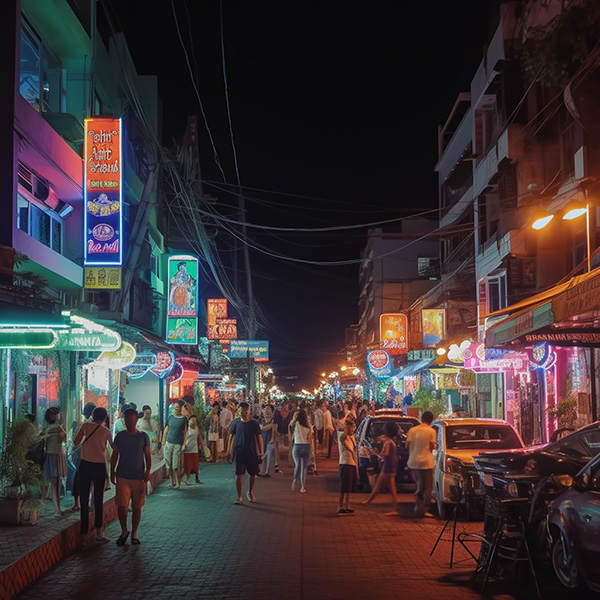
Prostitution
- Thailand has an estimated 200,000 to 300,000 sex workers.
- About 70% of Thai sex workers are migrants from rural areas.
- The child sex trade in Thailand generates an estimated $1 billion each year.
- About 70-80% of sex workers in Thailand enter the industry primarily for economic reasons.

Drugs
- 79% of prisoners incarcerated in Thailand are for drug-related offenses.
- Methamphetamine use in Thailand jumped 30% from 2023.
- According to a survey by Thailand's Chulalongkorn University, an estimated 57,900 Thais between the ages of 18 and 65 used meth at least once in 2023, up from some 44,500 the year before.


